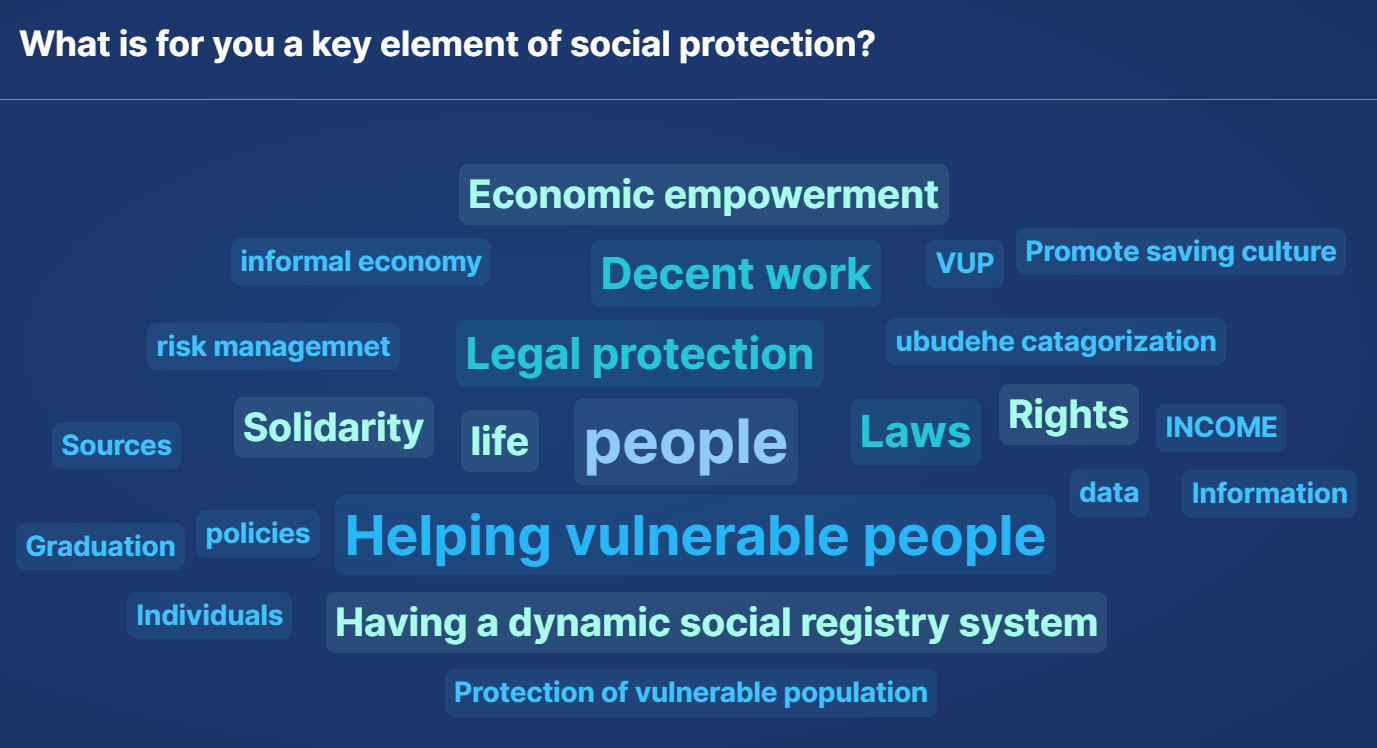Workshop on the extension of social protection to informal workers in Rwanda
Under the Decent Work Country Programme for Rwanda and the ILO Global Flagship Programme on Building Social Protection Floors for All, the ILO in collaboration with its tripartite partners will be organizing a workshop to strengthen capacities of key stakeholders in Rwanda on the extension of social protection to workers in the informal economy.
Context
The Rwanda National Strategy for Transformation (2018-2024) reaffirms the central role of social protection in eradicating poverty and enhancing the standard of living of Rwandans. The sector is further guided by the National Social Security Policy (2009) and the National Social Protection Policy (2020 – 2024). The national social protection system includes contributory and non-contributory schemes. The Rwanda Social Security Board (RSSB) - established in 2010 provides six schemes: (1) pension scheme; (2) occupational hazards scheme; (3) maternity leave scheme; (4) medical scheme; (5) community-based health insurance scheme (CBHI) and (6) EjoHeza, a long-term saving scheme with membership available to the whole population. While social health coverage reaches over 85% of the population, coverage of other schemes remains low. RSSB’s contributory schemes reach only formal workers accounting for less than 10% of the population. However, the COVID-19 pandemic also underlined the vulnerability of workers in the formal economy who currently don’t have unemployment protection. Since its launch in 2018, EjoHeza increased its membership reaching over 1,000,000 subscribers potentially providing protection to additional population groups including informal workers. However, to provide protection, the number of subscribers as well as the amounts saved will need to be increased. |  |
According to the Rwanda Labour Force Survey 2022, persons with informal employment at their main job accounted for almost 87% of total employment. Employment in the informal sector was mostly in market-oriented agriculture (56.8%), followed by construction (12.6%), wholesale and retail trade, repair of motor vehicles and motorcycles (11.7%), transport and storage (5.3%), and in manufacturing (4.6%). The large share of informal employment underlines the need to focus on formalisation and extension of social protection to these groups to achieve universal social protection.
The Rwanda Labour Law (2018) clearly states that both informal and formal workers benefit from the same protection, including social security. However, the number of informal workers and self-employed workers registered in social security remains marginal. In addition, initial consultations with tripartite stakeholders also identified non-registered workers working for formal enterprises as a key challenge to extend social security. Efforts to extend social protection (in addition to health protection) to the informal sector have focused on the extension of the EjoHeza Programme. The programme has been successful in recruiting new members but regularity of contributions and further extending membership remains challenging.
Objectives
The main objectives of the workshop are:
- Strengthen the knowledge on social protection and its extension to workers not yet covered.
- Deepen the understanding on the situation of workers and economic units in the informal economy with a specific focus on the barriers to coverage that they face.
- Identify potential measures to be taken to address coverage gaps in the following areas:
- legal coverage
- information, awareness, and trust
- alignment of benefits with priorities
- costs of social protection and/or formalization procedures and inadequate financing arrangements
- administrative procedures and services
- enforcement of social security requirements, control and compliance
- representation and organization of workers in the informal economy
- integration and coherence of the social protection system
- legal coverage
- Discuss and identify specific measures which can increase coverage of certain target groups.
Agenda and resources
The workshop agenda is available here.
Resources related to the workshop will be available under the Resources section.
The ILO has developed a number of tools, policy briefs and case studies bringing together experiences in extending social protection to workers in the informal economy. They are available under the related Policy Resource Package.
With financial support from